California's Toxic Pot Problem

By:
Marijuana reform efforts have increased access for millions of consumers in legal states—but the sustained demand for weed on the black market is wreaking havoc on the environment.
Illegal marijuana growth in California is producing significantly more chemical pollution than previously thought, unpublished state data obtained by Reuters reveals.
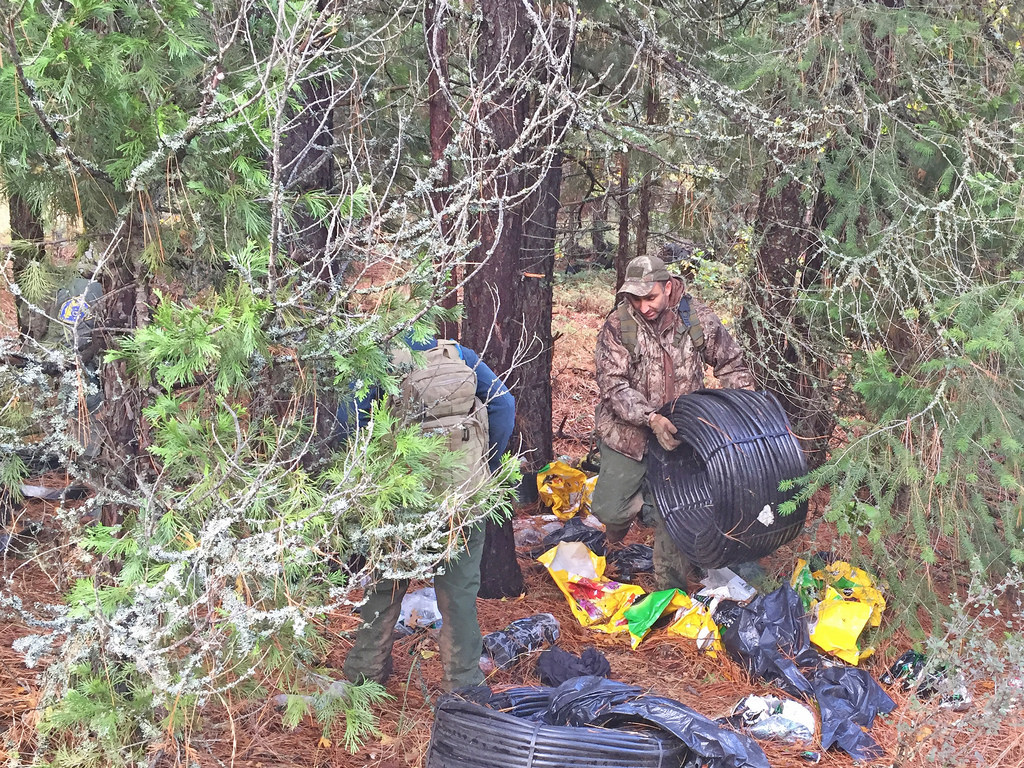 Flickr - staticflickr.com
Flickr - staticflickr.com
Marijuana drenched in fertilizer and pesticides—much of which have been banned due to the risk they pose to the environment and public health—have created toxic waste dumps that span "thousands of acres" throughout the state's national forests, where marijuana cultivation is prohibited.
Pesticide use is a problem in the legal, regulated cannabis market too. But required testing protocols have led to product recalls in states like Colorado and Washington and prompted lawmakers to reassess regulatory policies.
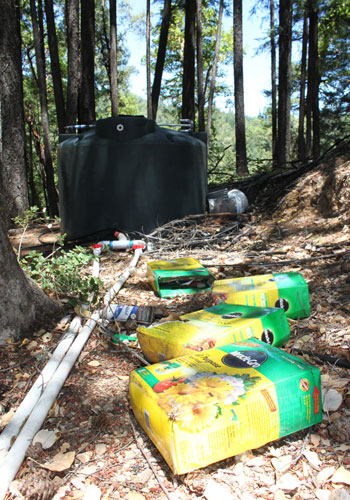 UC Berkeley - berkeley.edu
UC Berkeley - berkeley.edu
Toxic chemicals in the illegal marijuana market represent a more dire threat, as there are no legal mechanisms to enforce quality assurance and there's little incentive to produce safe cannabis in the black market. Rather, the black market exists to satisfy national demand without oversight.
Law enforcement agencies and state regulators charged with enforcing marijuana laws have stumbled upon expansive, illegal operations on public lands and backyards throughout California. To avoid detection, growers often abandon their farms after harvesting the crop, leaving behind evidence of environmentally hazardous cultivation practices.
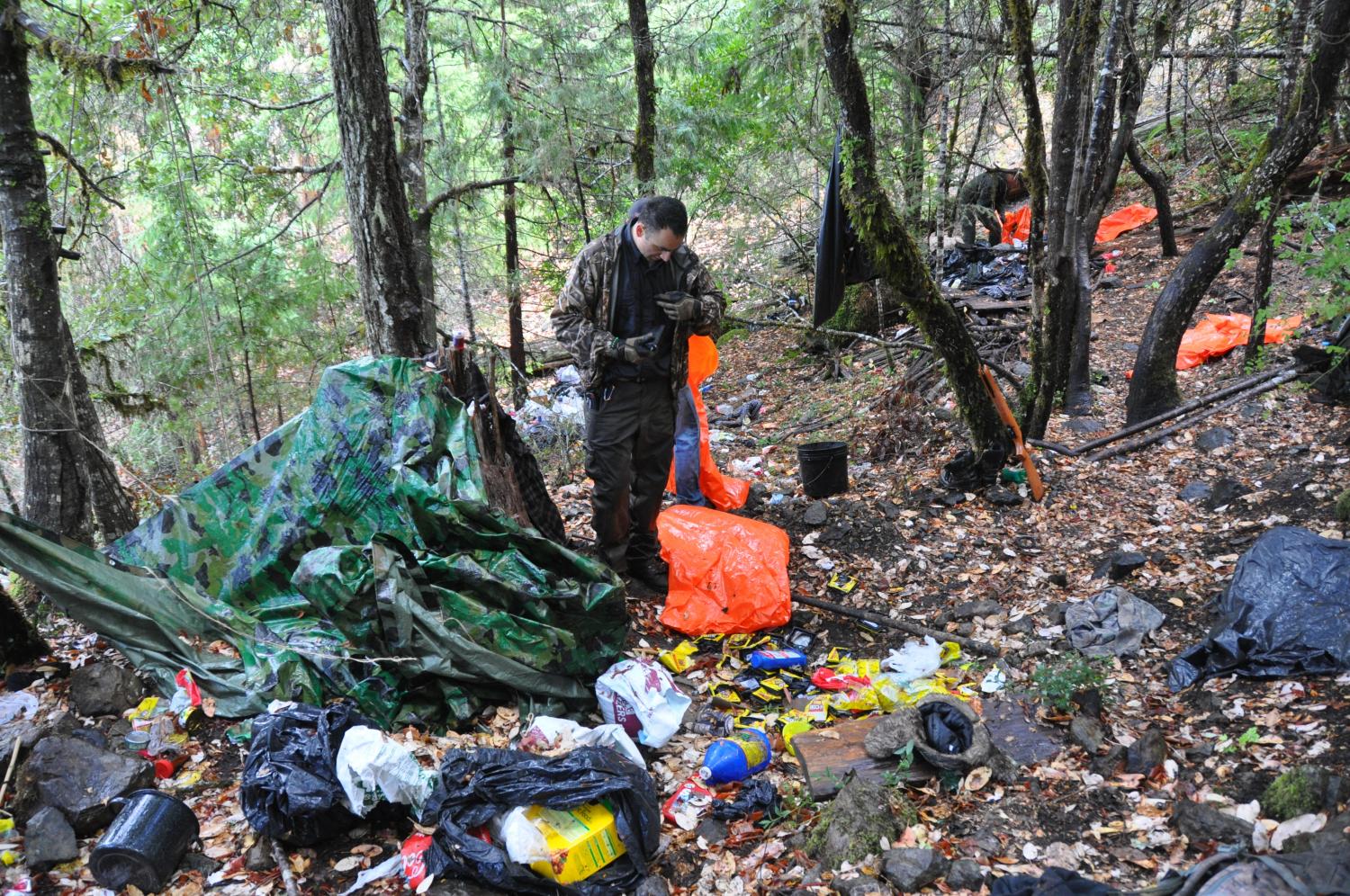 Hoopa Valley Tribal Forestry - internapcdn.net
Hoopa Valley Tribal Forestry - internapcdn.net
"There's a huge variety of pesticides and herbicides that we find on these sites," Clint Snyder, associate executive officer at the Central Valley Regional Water Quality Control Board, tells ATTN:. "On one end of the spectrum, it's the organic fertilizers that you hear about—and on the other end of the spectrum, it's things like carbofuran that are highly toxic [and] illegal in the United States. That's the compound your read about that a tablespoon can kill a bear."
When fertilizers enter freshwater supplies, they create algal blooms—deoxygenated dead zones where fish and other aquatic insects can't survive. Fish and rodents that consume pesticides and poison, which are meant to protect marijuana grows, can die and introduce toxicity that can climb the food chain.
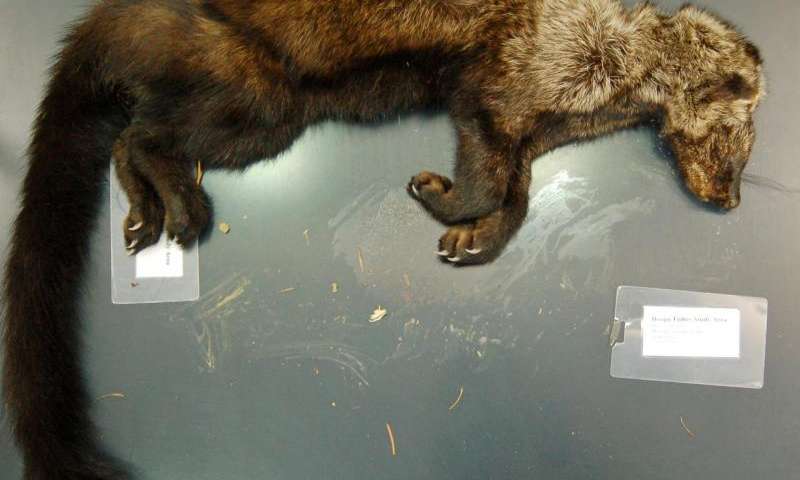 UC Davis - phys.org
UC Davis - phys.org
It's a problem that doesn't appear to be going away.
Last week, a coalition of sheriffs' departments and state regulatory agencies confiscated more than 28,000 marijuana plants and 31 tons of unprocessed marijuana, discovered at illegal farms throughout Calaveras County, California. It was the largest weed bust in the county's history, Calaveras County Sheriff Rick DiBasilio said in a press release on Friday.
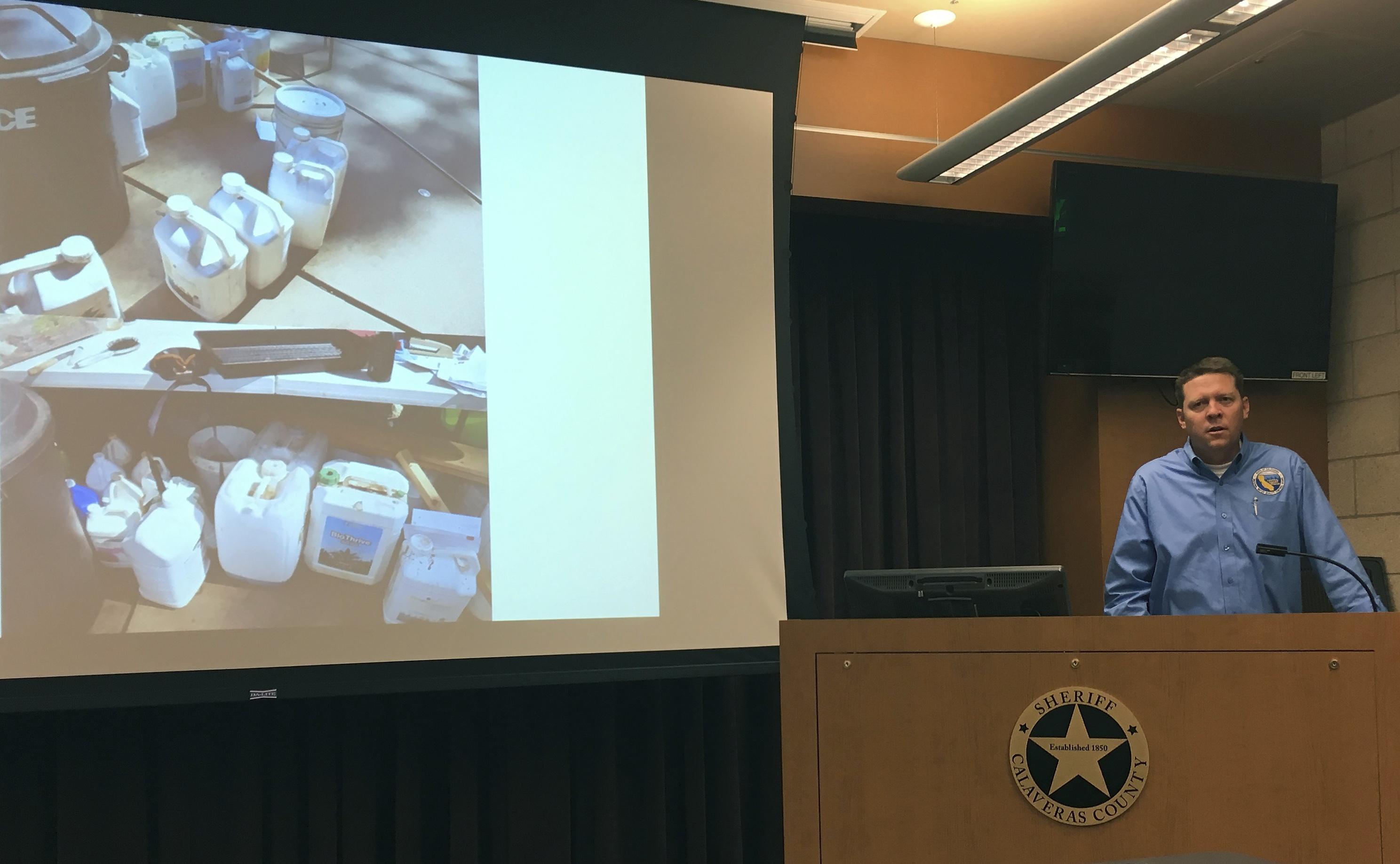 AP/Kathleen Ronayne - apimages.com
AP/Kathleen Ronayne - apimages.com
Bottles of fertilizer and pesticides left over at the raided grow operations are cause for concern, says Snyder, whose department participated in the enforcement effort nicknamed "Operation Terminus."
According to Reuters, pesticide exposure from illegal marijuana grows has sent "at least five law enforcement officials and two suspects to hospitals with skin rashes, respiratory problems and other symptoms."
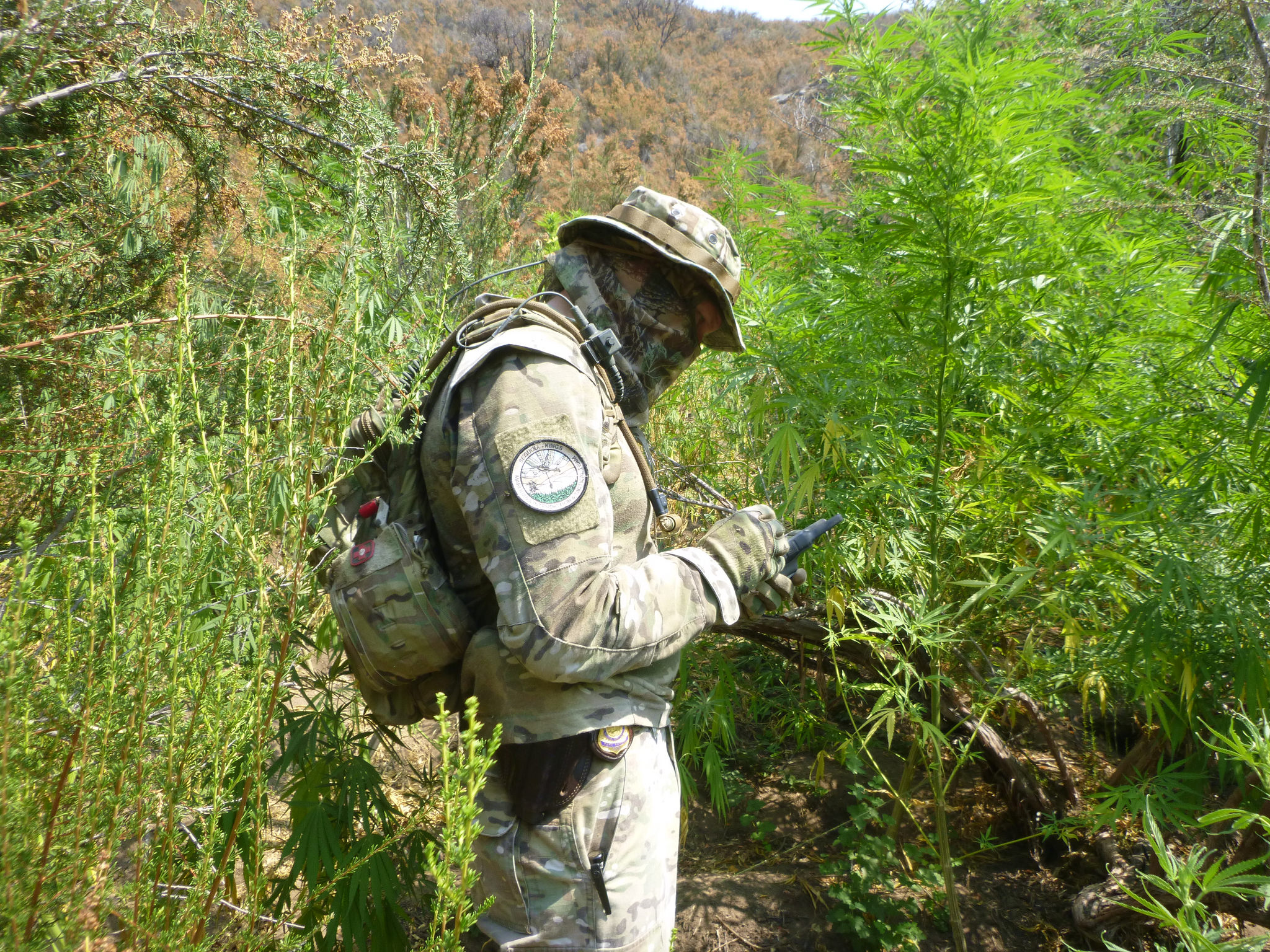 National Park Service - nps.gov
National Park Service - nps.gov
Even as California prepares to implement its recreational marijuana system next year, the toxic pot problem isn't likely to disappear. California's illegal marijuana farms produce 90 percent of black market weed nationwide. So while adults in the state might opt for legal dispensaries, there are still 23 states where marijuana is flatly prohibited that will continue to serve as an illegal weed market.
The solution to the problem is simple, says Hezekiah Allen, executive director of the California Growers Association.
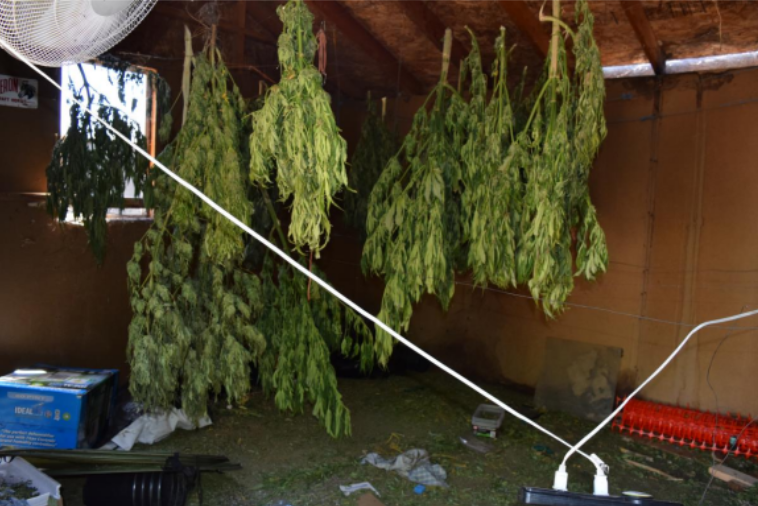 Calaveras County Sheriff - ca.us
Calaveras County Sheriff - ca.us
"Deschedule cannabis and end prohibition so that it's not a safe harbor for criminal activity," he tells ATTN:. "The bottom line here is that there is tremendous consumer demand for this product, and where there is demand and where there is economic benefit, humans have proven time and again that, regardless of what laws say, they will find a way to get those products to willing buyers."
"The longer that we try to live in this confusing reality where we try to regulate what consenting adults can and cannot consume, the longer these types of activities will persist," Allen says. "In a regulated, transparent marketplace, where consumers have access to safe products grown on private land by farmers complying with environmental and safety standards, I have zero doubt that the consumers would buy the safe, regulated product, all things being equal."
